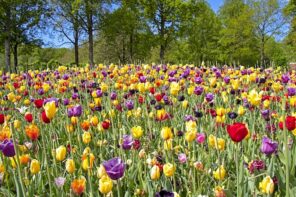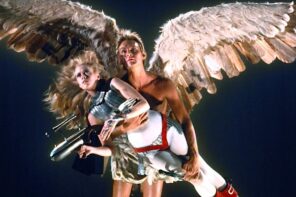It’s spooky season again, the time of year when we’re drawn to horror; when The Great Pumpkin arrives to teach us how to live with the blockheads; when the pagan outrage machine is fired up; and when, increasingly, full-grown adults dive headfirst into a fantastical world of zombies, superheroes, and killer clowns, often exemplified by those who look forward to Halloween for months, even preferring it to Christmas and Hanukkah.
But why are we surprised that, as a recent USA Today headline put it, “Halloween’s been hijacked by adults,” or that more than half of all costumes sold by a popular online retailer are for grownups? Is this adult Halloween craze about expressing ourselves and finding joy, as the article suggests? Perhaps, but that seems more like a description than an explanation.
Sociologist Linus Owens argues that the increase in popularity comes from the sort of “purgatory” young adults find themselves in as the traditional markers of adulthood like family, career, and homeownership are delayed or abandoned. Reacting to this purgatory, young adults explore their identities through activities such as costuming and take Halloween as an opportunity to be creative.
While I don’t disagree with Owens’ assessment, my research has led me to conclude that those markers of adulthood were merely dampening a craving for enchantment we all share. Young adults in the situation Owen outlines simply have fewer social constraints to prevent them from craving enchantment more keenly. As I argued in an earlier piece, even though traditional religious affiliation has been declining in the United States, enchantment has not.
What I mean by enchantment is a belief in the non-rational, the magical, the mysterious, and the supernatural. Survey data and ethnographic studies show that the majority of Americans who claim no religious affiliation still believe in and seek out the supernatural and unexplained. In fact, Americans are seeking out new ways to experience enchantment now that the old ways (traditional religion) are losing hold on society and the lives of individuals. Halloween is a major available source of enchantment for Americans and is especially well-suited to the contemporary American religious landscape. You don’t have to join anything or draw any firm boundaries to embrace Halloween, and there’s no authority structure to obey. Halloween is centered on play and fun. It’s enchantment without commitment.
Strikingly, while religious disaffiliation is increasing across demographic groups, the drop in affiliation is more pronounced in younger groups. Data on which age groups participate most in Halloween activities mirror the data on which age groups are most likely to be religiously unaffiliated. In general, Baby Boomers are least likely to celebrate Halloween and lack religious affiliation, while Millennials and Gen Z are the most likely to celebrate Halloween and be religiously unaffiliated.
As a scholar of American religion I’ve observed various Facebook groups devoted to Halloween all year long and interviewed members of these groups about why they love Halloween so much. Many discussed a certain magical feeling in the air when the cool weather rolls in and jack-o-lanterns pop up on porches.
One man told me, “It goes back to being a kid, and recognizing the ‘eeriness’ as leaves fall, trees look scarier, it get[s] darker earlier, and there is this ‘atmosphere’ that just has you feeling like you’re not alone.” Another added, “I like Halloween because it has this really cool link between the living and the dead. It’s the time when the veils between the worlds are the thinnest allowing the supernatural elements to come again.”
Some discuss the holiday’s alleged origins in the mystical and ancient Celtic fall festival of Samhain. A self-identified member of “’witchy’ circles” explained, “Samhain…holds the potential for reaching spirits on the other side, giving us connections that feel otherworldly and magical.”
Many of those I interviewed referenced childhood and the magic of childhood experiences. The magic of Halloween just seemed more real to them as children, and they often seek to make Halloween magical for the children in their lives. Childhood as a whole is seen as an age of enchantment while adulthood is an age of rationality.
Sociological research has found that nostalgia increases as personal or social upheaval increases because nostalgia frequently results from a feeling of displacement. We can expect the political upheaval of the past several years and Covid anxieties to further fuel the quest for nostalgic enchantment around events like Halloween.
In a society with declining religious affiliation but a booming appetite, Halloween offers a healthy dose of enchantment that’s non-sectarian, media-rich, fun, nostalgia-driven, and non-authoritarian—perfect for the contemporary American spiritual landscape.





